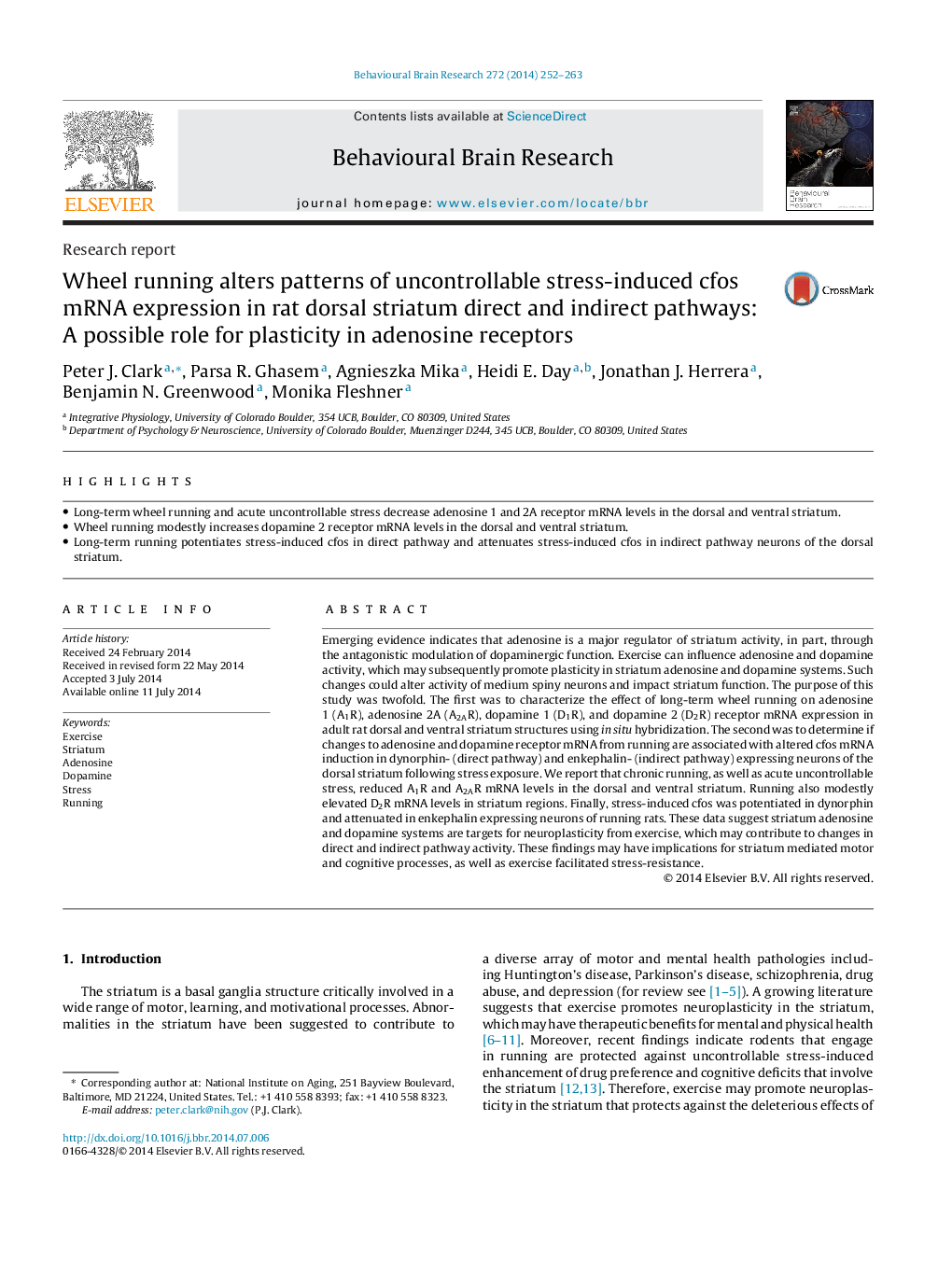| Article ID | Journal | Published Year | Pages | File Type |
|---|---|---|---|---|
| 6257518 | Behavioural Brain Research | 2014 | 12 Pages |
â¢Long-term wheel running and acute uncontrollable stress decrease adenosine 1 and 2A receptor mRNA levels in the dorsal and ventral striatum.â¢Wheel running modestly increases dopamine 2 receptor mRNA levels in the dorsal and ventral striatum.â¢Long-term running potentiates stress-induced cfos in direct pathway and attenuates stress-induced cfos in indirect pathway neurons of the dorsal striatum.
Emerging evidence indicates that adenosine is a major regulator of striatum activity, in part, through the antagonistic modulation of dopaminergic function. Exercise can influence adenosine and dopamine activity, which may subsequently promote plasticity in striatum adenosine and dopamine systems. Such changes could alter activity of medium spiny neurons and impact striatum function. The purpose of this study was twofold. The first was to characterize the effect of long-term wheel running on adenosine 1 (A1R), adenosine 2A (A2AR), dopamine 1 (D1R), and dopamine 2 (D2R) receptor mRNA expression in adult rat dorsal and ventral striatum structures using in situ hybridization. The second was to determine if changes to adenosine and dopamine receptor mRNA from running are associated with altered cfos mRNA induction in dynorphin- (direct pathway) and enkephalin- (indirect pathway) expressing neurons of the dorsal striatum following stress exposure. We report that chronic running, as well as acute uncontrollable stress, reduced A1R and A2AR mRNA levels in the dorsal and ventral striatum. Running also modestly elevated D2R mRNA levels in striatum regions. Finally, stress-induced cfos was potentiated in dynorphin and attenuated in enkephalin expressing neurons of running rats. These data suggest striatum adenosine and dopamine systems are targets for neuroplasticity from exercise, which may contribute to changes in direct and indirect pathway activity. These findings may have implications for striatum mediated motor and cognitive processes, as well as exercise facilitated stress-resistance.
